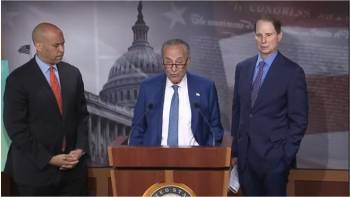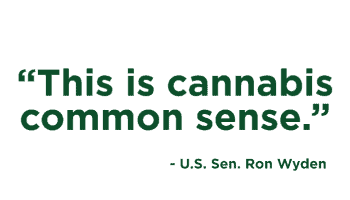RICHMOND, Virginia, July 19, 2021 – PRESS RELEASE—Governor Ralph Northam announced appointments to the three newly-created boards responsible for overseeing the legalization of recreational cannabis in the Commonwealth. This spring, Virginia became the first Southern state to pass adult-use cannabis legislation, with changes going into effect on July 1, 2021. The new law legalizes simple possession and home cultivation for adults 21 and over, seals some marijuana-related records, and creates a new independent state entity, the Cannabis Control Authority (CCA), to regulate the cannabis market. In the coming years, the General Assembly must reenact sections of the bill, and the CCA must implement regulations before legal sales of cannabis can begin.
“Virginia is committed to legalizing cannabis the right way—by learning from other states, by listening to public health and safety experts and by centering social equity,” Northam said. “There is a tremendous amount of work ahead to establish an adult-use marijuana market in our Commonwealth, and I am proud to appoint these talented Virginians who will bring diverse backgrounds, an incredible depth of expertise, and a shared commitment to public service to this important effort.”
Information about each of the boards and the Governor’s appointments can be found below. Answers to frequently asked questions are available at cannabis.virginia.gov.
CANNABIS CONTROL AUTHORITY
The Cannabis Control Authority (CCA) is the regulatory agency for the legal cannabis market in Virginia. The CCA is led by a five-member Board of Directors responsible for the creation of the adult-use marketplace for cannabis and is statutorily vested with control of the regulated sale, transportation and distribution of cannabis and cannabis products in the Commonwealth. In the coming years, the Board will work to create a fair and equitable regulatory structure and provide critical guidance to the CCA’s staff as they work to develop a workforce, establish regulations, and ensure that marijuana legalization accomplishes the health, safety, and equity goals established by law. Board members cannot have financial interests in the cannabis industry. The enacted legislation authorizes the Governor to appoint all five members of the Board.
“The diverse range of backgrounds and expertise will provide critical perspectives to the Cannabis Control Authority and the important work that is ahead,” said Secretary of Public Safety and Homeland Security, Brian J. Moran. “I look forward to working with the board members as we begin this process.”
Neil Amin of Henrico, Chief Executive Officer, Shamin Hotels
Neil Amin has been appointed to the Cannabis Control Authority Board of Directors and will serve as Chair. Neil started his career at Goldman Sachs & Co. where he advised public and private technology companies on merger and acquisition transactions and capital markets activities. Since 2008, he has served as Chief Executive Officer of Shamin Hotels, which owns and operates over 60 hotels under the Hilton, Marriott, Intercontinental Hotels, and Hyatt brands. He has previously served on the Virginia Treasury Board, Virginia Small Business Financing Authority, and the Governor’s Advisory Council on Revenue Estimates. Mr. Amin graduated summa cum laude from The Wharton School of the University of Pennsylvania, where he earned a Bachelor of Science degree in Economics and a Master of Business Administration.
Michael Jerome Massie, Esq. of Portsmouth, Owner, Michael Jerome Massie, PC
Michael Jerome Massie has been appointed to the Cannabis Control Authority Board of Directors and will serve a Vice Chair. Michael is a trial lawyer with experience at every level of Virginia’s courts and federal courts. He is currently the owner of Michael Jerome Massie, PC. He started his practice of law as a Commonwealth’s Attorney for the City of Portsmouth and has served as a Substitute Judge. Michael earned a Bachelor of Arts degree in American Government from the University of Virginia, a Juris Doctor from the University of Colorado, and a Master of Divinity from Virginia Union University.
Bette Brand of Roanoke, Chief Executive Officer, Strategic Consulting LLC
Bette Brand has been appointed to the Cannabis Control Authority Board of Directors. Bette has served in several roles at the United States Department of Agriculture including Deputy Under Secretary for Rural Development, Administrator of Rural Business Cooperative Service, and Acting Administrator of Rural Utility Service. Prior to her federal service, Bette held senior leadership positions at Farm Credit of the Virginias for more than 35 years. She is currently Founder and CEO of Strategic Consulting LLC. Bette earned a Bachelor of Science degree in Agriculture from Virginia Tech and a Master of Business Administration from Virginia Tech.
Rasheeda N. Creighton of Richmond, Co-Founder, The Jackson Ward Collective
Rasheeda N. Creighton has been appointed to the Cannabis Control Authority Board of Directors. Rasheeda is the co-founder of The Jackson Ward Collective and Founder and Chief Executive Officer of The 3Fifty Group. She previously served as the Executive Director of Capital One’s 1717 Innovation Center. Rasheeda received her Bachelor of Arts degree in English from Spelman College and her Juris Doctor from The University of Michigan Law School.
Shane Emmett of Midlothian, Co-Founder and Former Chief Executive Officer, Health Warrior
Shane Emmett has been appointed to the Cannabis Control Authority Board of Directors. Shane served as an attorney in the Office of the Counselor to Governor Tim Kaine and then co-founded and served as Chief Executive Officer of Health Warrior, a superfood brand recently acquired by PepsiCo. He is now an occasional advisor to PepsiCo and Entrepreneur in Residence at the University of Richmond, while serving on a number of growth consumer brand boards, as an advisor to consumer-facing venture and private equity firms, and working on a book about the American state of food. He has law degrees from Oxford University and Wake Forest University.
CANNABIS EQUITY REINVESTMENT BOARD
Virginia’s adult-use cannabis law dedicates 30 percent of tax revenue from cannabis sales—a predicted $7.8 to 12.9 million in 2024 and $38.4 to 63.9 million in 2028—to a Cannabis Equity Reinvestment Fund. The Fund will be managed by the 20-person Cannabis Equity Reinvestment Board and used to provide resources to communities that have experienced disproportionate enforcement of drug laws and economic disinvestment. Specifically, it will support locally designed and community-based responses to such impacts, including grants for workforce development, apprenticeship, and reentry programs, and scholarships for historically marginalized individuals.
“We are intentionally constructing an equitable blueprint that will embed equity and inclusion at every stage and every level of the marijuana legalization process,” said Dr. Janice Underwood, chief diversity officer to Governor Northam, who will chair the Board. “The Cannabis Equity Reinvestment Board will serve as an important voice for Virginians and help elevate resources to the persons, communities and families most negatively impacted by the disparate enforcement of marijuana laws and ensure that equity remains at the forefront of legalization in Virginia.”
The enacted legislation authorizes the Governor to make five appointments to the Board, including one representative from the Virginia Indigent Defense Commission and four representatives of a community-based provider or community development organization. The General Assembly will make eight additional appointments, including someone who has been previously incarcerated or convicted of a marijuana-related crime, a veteran, a representative from one of Virginia’s historically Black colleges and universities, an entrepreneur, and experts in public health with experience in trauma-informed care, education with a focus on access to opportunities for youth in underserved communities, Virginia’s foster care system, and workforce development. Additional information on this Board, including the seven ex-officio members, is available here.
- Jorge Figueredo, MPP of Falls Church, Executive Director, Edu-Futuro
- Amari Harris of Richmond, Equity, Diversity, and Inclusion Attorney, Virginia Indigent Defense Commission
- W. Anthony West of Roanoke, Chief Operations Officer, Virginia CARES (Community Action Re-Entry System)
- Sheba Williams of Richmond, Executive Director, Nolef Turns, Inc.
- Vickie R. Williams-Cullins of Hampton, Executive Director, OPN-Door Communications LLC
CANNABIS PUBLIC HEALTH ADVISORY BOARD
The 21-person Cannabis Public Health Advisory Council is an expert advisory council to the CCA Board of Directors. It will assess and monitor public health issues, trends, and impacts related to cannabis and cannabis legalization and make recommendations regarding health warnings, retail cannabis and product safety and composition, and public health awareness, programming, and related resources. Additionally, the Council must approve any health-related regulations before the CCA can finalize them.
“The Cannabis Public Health Advisory Council will ensure that health experts have a seat at the table as Virginia establishes a legal cannabis market,” said Secretary of Health and Human Resources Daniel Carey, MD, MHCM, who will chair the Council. “I am pleased to serve alongside these dedicated and knowledgeable council members.”
The enacted legislation authorizes the Governor to make four appointments to the Council, which must include a representative of a local health district, someone from the cannabis industry, an academic researcher knowledgeable about cannabis and a registered medical cannabis patient. The General Assembly will make 10 additional appointments, including a representative from the Virginia Foundation for Healthy Youth, experts in substance use disorder treatment and prevention, a person with experience in disability rights advocacy, a person with a social or health equity background, a member of the Medical Society of Virginia and a representative from the Virginia Pharmacists Association. Additional information on this Board, including the seven ex-officio members, is available here.
- Ngiste Abebe of Richmond, Vice President of Public Policy, Columbia Care
- Larry Keen II of Petersburg, Associate Professor, College of Health and Natural Sciences, Department of Psychology, Virginia State University
- Cynthia Morrow, MD, MPH, of Roanoke, Health Director, Roanoke City and Alleghany Health Districts
- Marcus Treiber of Leesburg, Chief Executive Officer, EMT Holdings LLC




















